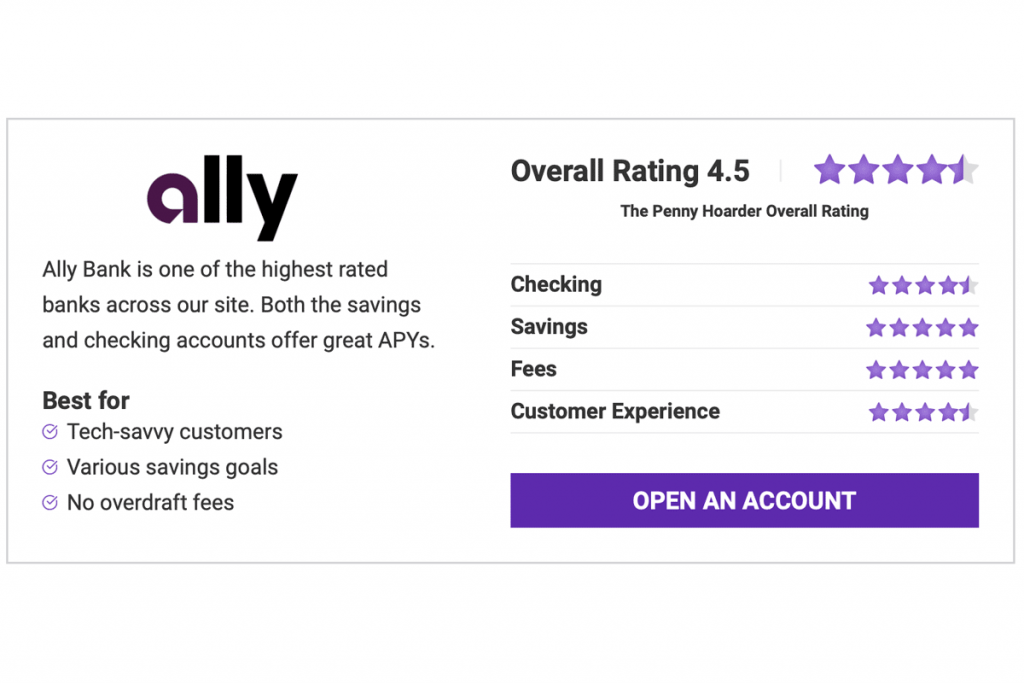Even if you don’t like to lie, you probably occasionally use the little white variety as a tool to protect other people when the truth would do more harm than good.
It becomes a serious problem when we make a habit of telling lies — especially when we lie to ourselves. But some of us do it all the time when it comes to our finances.
We tend to deceive ourselves when there’s a disconnect between where we really are with our finances and where we’d like to be. So we tell ourselves these common lies:
Lie No. 1: Your Debt Is Under Control
You don’t always just pay the minimum on your credit card. But if you’re being honest with yourself, those occasional chunk payments aren’t really bringing down your average balance.
Honestly, if you’re like most of us, you’re treading water.
And the truth is, your credit card company doesn’t really care. It’s just getting rich by ripping you off with high interest rates — some up to 36%. But a website called AmOne wants to help.
If you owe your credit card companies $50,000 or less, AmOne will match you with a low-interest loan you can use to pay off every single one of your balances.
The benefit? You’ll be left with one bill to pay each month. And because personal loans have lower interest rates (AmOne rates start at 2.49% APR), you’ll get out of debt that much faster. Plus: No credit card payment this month.
You don’t need a perfect credit score to get a loan — and comparing your options won’t affect your score at all. Plus, AmOne keeps your information confidential and secure, which is probably why after 20 years in business, it still has an A+ rating with the Better Business Bureau.
It takes less than a minute and just 10 questions to see what loans you qualify for — you don’t even need to enter your Social Security number. You do need to give AmOne a real phone number in order to qualify, but don’t worry — they won’t spam you with phone calls.
Lie No. 2: You Keep a Loose Budget in Your Head, and That’s Good Enough
An integral part of managing your money is creating a budget. Ew, gross. We know. But it’s important to take a good look at what you’re spending and where you can cut back.
If you’re not sure where to even start, we favor the 50/20/30 budgeting method for its simplicity. Here’s how it works:
- 50% of your income goes toward essentials.
- 20% goes toward financial goals.
- 30% goes toward personal spending.
The key is to accept you can’t create the perfect budget in an hour. You’ll have to experiment to find what works best for you.
Lie No. 3: Your Credit Is Good Enough
You’ve got big plans. Maybe you’ve got your eye on a new car. Or you’re hoping to buy a house in the next few years. Or you’d even like to start your own business. But here’s the thing: No matter what your goals are, you might not realize how much your credit score is standing in your way.
The good news? A free website called Credit Sesame makes it easy to put your credit score on track to reach your goals. We even talked to one guy, James Cooper, of Atlanta, who used Credit Sesame to raise his credit score nearly 300 points in six months.*** He says they showed him exactly what to do — he was even able to open his first credit card.
What could adding 300 points to your score mean for your goals? It could easily save you thousands of dollars over the life of a car loan or mortgage.
Within 90 seconds, Credit Sesame will give you access to your credit score, any debt-carrying accounts and a handful of personalized tips to improve your score. You’ll even be able to spot any errors holding you back (one in five reports have one).
Make sure your plans don’t get sidelined by bad credit. Sign up for free (it only takes about 90 seconds) and see how much you could improve your score.
Lie No. 4: You Make Enough Money to Justify Your Spending Habits
Maybe you spent a little too much last month. But that’s OK. You deserved a little treat, right? And besides, you’ve got a steady income. It’ll all come out in the wash.
Gut check: You’re probably not earning enough to support your lifestyle. Here’s a solution we like: Make extra spending money by sharing your opinion online.
It sounds strange, but brands want to hear your opinion. It helps them make business decisions, so they’re willing to pay you for it — up to $140 a month.
A free site called Branded Surveys will pay you up to $5 per survey for sharing your thoughts with their brand partners. Taking three quick surveys a day could earn up to $140 each month.
It takes just a minute to create a free account and start getting paid to speak your mind. Most surveys take five to 15 minutes, and you can check how long they’ll take ahead of time.
And you don’t need to build up tons of money to cash out, either — once you earn $5, you can cash out via PayPal, your bank account, a gift card or Amazon. You’ll get paid within 48 hours of your payout being processed, just for sharing your opinions.
They’ve already paid users more than $20 million since 2012, and the most active users can earn a few hundred dollars a month. Plus, they’ve got an “excellent” rating on Trustpilot.
It takes just a minute to set up your account and start getting paid to take surveys. Plus, right now, you’ll get a free 100-point welcome bonus just for becoming part of the community.
Lie No. 5: You Don’t Waste That Much Time on Your Phone
Our smartphones are the world’s greatest time-killers. Browse Facebook, Twitter, TikTok or Instagram. Watch a video on YouTube. Play some Minecraft or Roblox.
Oh, and there’s bingo. We found a free iPhone app called Bingo Cash that lets you play for real money. You could get paid up to $83 per win.
You might be thinking: There’s got to be a catch. This is definitely one of those spammy apps, right?
But there really isn’t a catch. Sure, you can pay to play in some higher-stakes tournaments, but there’s no pressure. And, in fact, there aren’t even any annoying ads.
The game is based on a classic Bingo format. You’ll battle it out against other players at your same skill level. Everyone gets the same board and sees the same Bingo balls. The top three players in a game can win real money — anywhere from $1 to $83.
Over on the App Store, it has a 4.7-star rating (out of 5).
To get started, just download the free app and start playing your first game immediately.
Lie No. 6: You Can’t Cut Your Bills Any Further
Here’s the thing: your current car insurance company is probably overcharging you. But don’t waste your time hopping around to different insurance companies looking for a better deal.
Use a website called EverQuote to see all your options at once.
EverQuote is the largest online marketplace for insurance in the US, so you’ll get the top options from more than 175 different carriers handed right to you.
Take a couple of minutes to answer some questions about yourself and your driving record. With this information, EverQuote will be able to give you the top recommendations for car insurance. In just a few minutes, you could save up to $610 a year.
Lie No. 7: You Don’t Have Time for a $300/Month Side Gig
If you’re like us, your garage probably isn’t doing much of anything at the moment. Maybe you have some tools in there, or maybe it’s home to your boxes of odds and ends, collecting dust.
But with a website called Neighbor, your extra space — whether it’s a spare room, an empty garage or a parking space — could be earning you an extra $300 a month in totally passive income.
Neighbor works by connecting people who need storage space with hosts who have the room to spare. The average host makes about $300 a month, but some people have earned up to $50,000 a year just by letting people park on their property.
It takes less than 10 minutes to get started. Just answer a few questions about your space, take some pictures and set your asking price. Neighbor will recommend a dollar amount based on your location and type of rental, but the final listing is up to you.
Neighbor even gives you up to $1 million in free protection as a host and offers protection plans for your renters, giving you both peace of mind.
Neighbor is an easy source of passive income, and it’s easier than most side hustles. It’s free to list your space, and you’ll only be charged a 4.9% processing fee from the profit you make each month, so there’s no risk to you.
Sign up here and see how much you could earn.
***Like Cooper, 60% of Credit Sesame members see an increase in their credit score; 50% see at least a 10-point increase, and 20% see at least a 50-point increase after 180 days.
Credit Sesame does not guarantee any of these results, and some may even see a decrease in their credit score. Any score improvement is the result of many factors, including paying bills on time, keeping credit balances low, avoiding unnecessary inquiries, appropriate financial planning and developing better credit habits.
Credit: Source link














